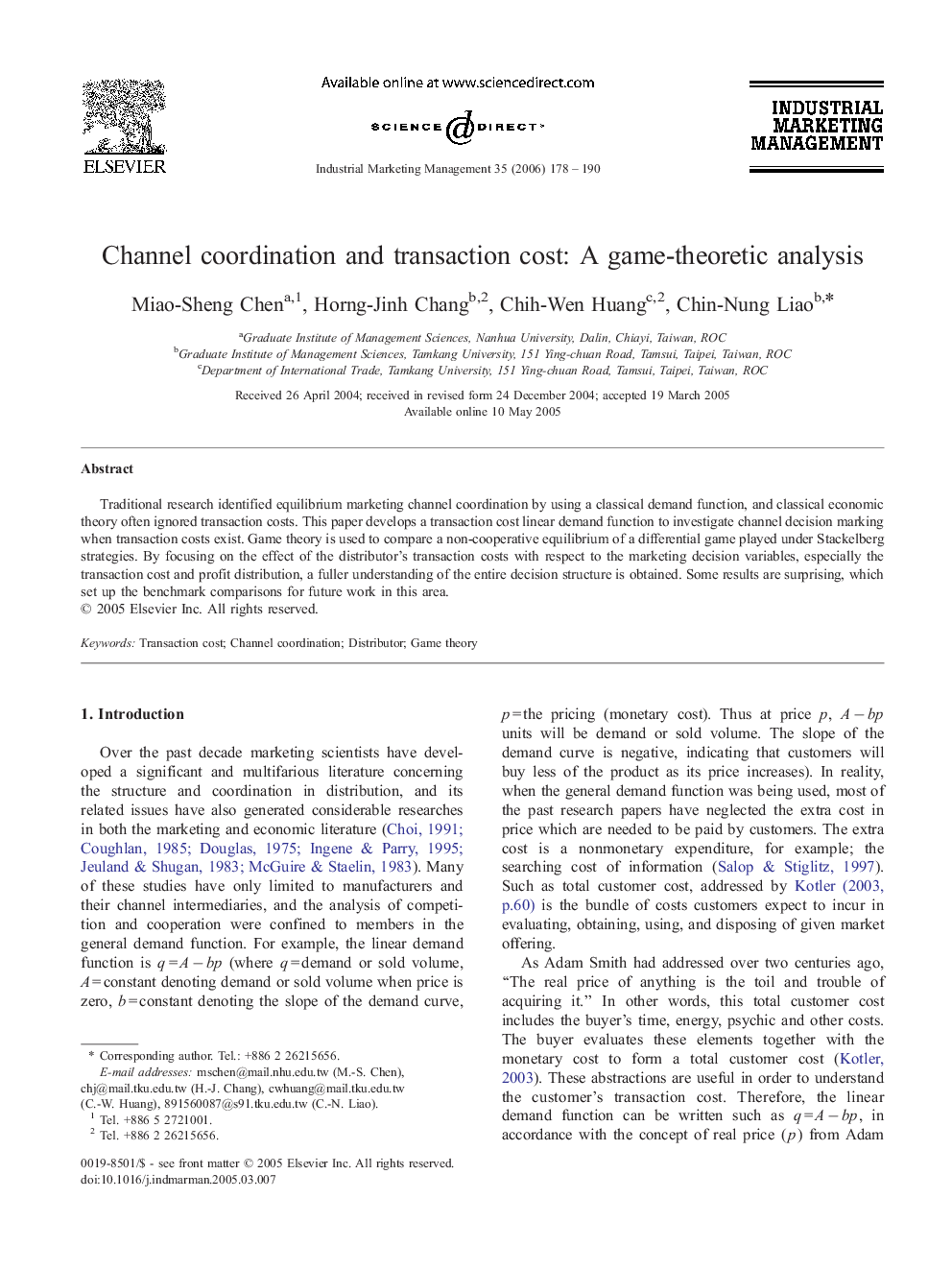| Article ID | Journal | Published Year | Pages | File Type |
|---|---|---|---|---|
| 1028706 | Industrial Marketing Management | 2006 | 13 Pages |
Traditional research identified equilibrium marketing channel coordination by using a classical demand function, and classical economic theory often ignored transaction costs. This paper develops a transaction cost linear demand function to investigate channel decision marking when transaction costs exist. Game theory is used to compare a non-cooperative equilibrium of a differential game played under Stackelberg strategies. By focusing on the effect of the distributor's transaction costs with respect to the marketing decision variables, especially the transaction cost and profit distribution, a fuller understanding of the entire decision structure is obtained. Some results are surprising, which set up the benchmark comparisons for future work in this area.
